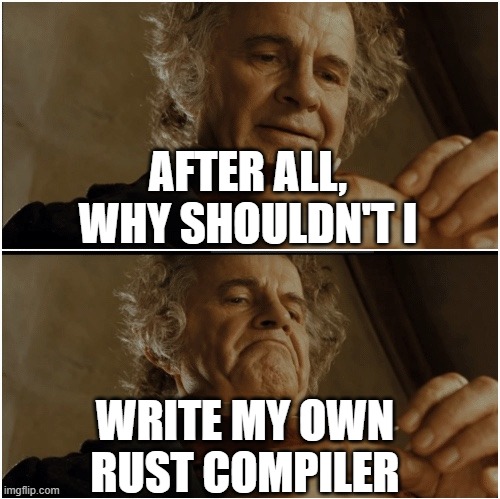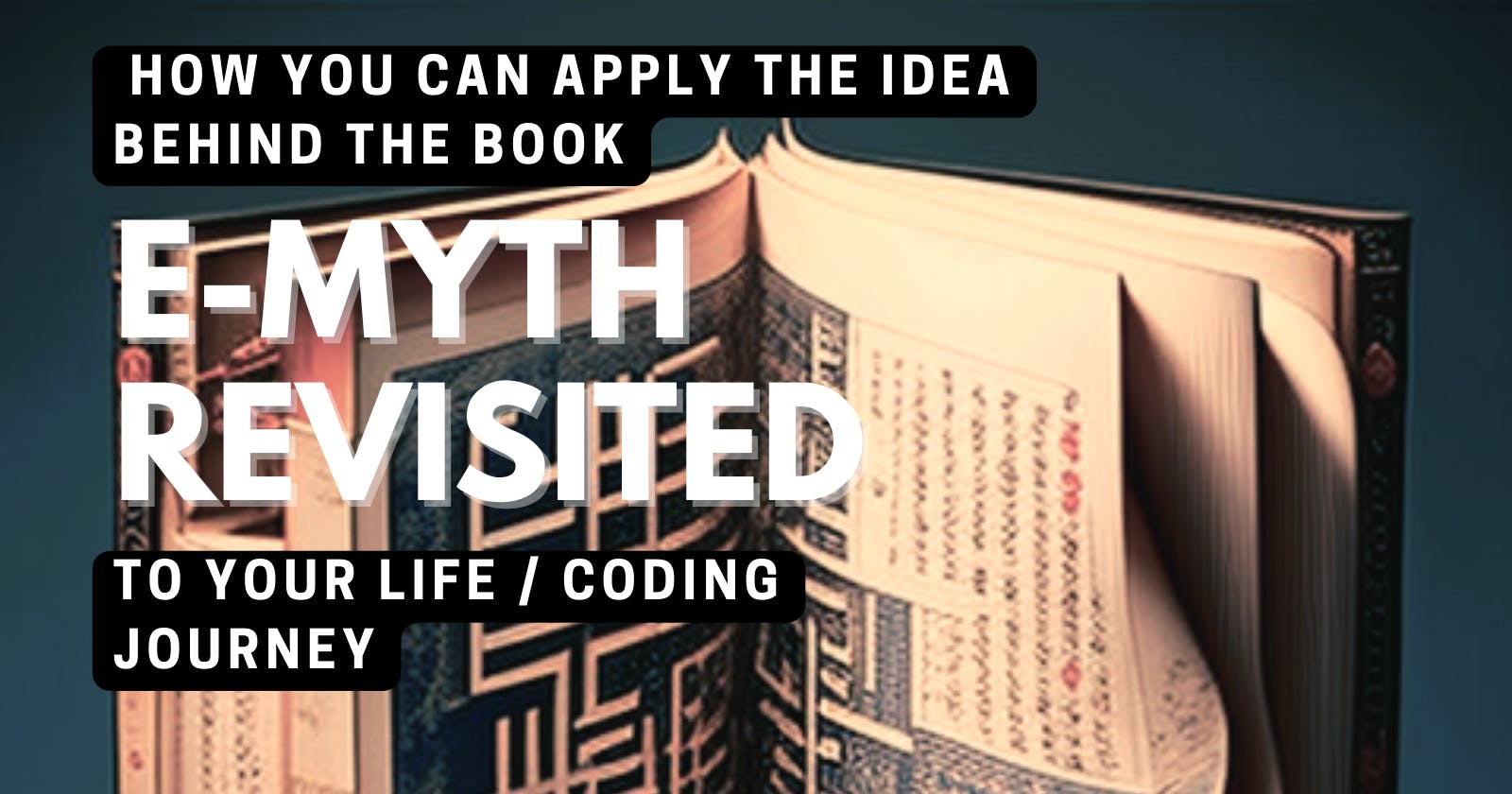Introduction
I was recently recommended this book to read and still have memories of seeing it on my parent's bookshelf when I was a kid but having never actually read it I was intrigued. I'm so glad I did.
In preparation for the book I caught a couple of podcasts with him as a guest and he comes across as very passionate and direct.
Micheal Gerber and the E-myth franchise is a bit of a juggernaut. He has written something like 20+ books and has been on countless podcasts and held what i can only imagine would be hundreds of seminars.
I found myself sort of aha'ing y way through the book and though my main objective is not to start a business I find the topic of entrepreneurship pretty cool.
Also full disclosure I listened to the book, not read it. I usually struggle if the narration is terrible but the version I listened to was quite good.
What is the e-myth?
I'm going to try and condense this a bit and paraphrase so we aren't sticking to the original verbatim but here it goes.
The e-myth or " entrepreneurial myth" is that people who start businesses know something about business, but most don't.
There are three modes the technician, the entrepreneur and the manager.
The technician is the person who is skilled in their craft and typically starts a business because they are passionate about what they do. They tend to focus on doing the work themselves rather than delegating, which can lead to burnout and limited growth.
The entrepreneur is the visionary who dreams up new ideas and sees the big picture. They are often focused on growth and innovation, but may struggle with the day-to-day operations of the business.
The manager is the person who ensures that things run smoothly and efficiently. They are focused on systems, processes, and metrics, and may struggle to think outside of the box or take risks.
These people spend their time as employees in their own business (stuck) trying to work their way to success and at some point when the work builds up or they get sick they realise they will never be fast enough, smart enough or able to work enough hours to do everything they need to without some kind of plan/business skills.
But it’s too late by then.
The solution? start/plan your business like it’s in its finished form. Solve for completion and work your way back up the chain.
By now you are thinking. that is a real solid piece of advice right there. and you are right. I believe there is something we can all take with us.
That's great and really interesting, but what the hell does that have to do with coding I hear you ask?
Oh. yes. Coding.
Sometimes in tech - (or it seems to me in my short experience) we jump into things headfirst, lured in by the glimmer of novelty and the buzz of the latest and greatest.
Or we simply don't know what we might be able to achieve or worse still daren't dream of the heights we wish to ascend to.
Maybe it's stacking on certs or perhaps taking that course on making your own rust compiler on a raspberry pi or whatever and look - rust compilers are important but hear me out.

I’m saying this book is here to remind you, me... us that there is no substitute and there never will be for planning, self-belief and attention to detail.
To me, it really is one of those "everything in the universe is one thing" types of lessons. How you approach your coding is what type of Dad you are, what kind of cook you are is the way you approach your career and so on.
Some things that kind of occurred to me were this type of thinking might be useful.
Career:
You gotta have a clear-as-day vision of where you want to be ten years from now - where do you work? what does your office look like? how much do you make, how much do you charge? what types of projects do you work on? what types of clients do you want? what channels /markets/places will you sell your stuff and on and on it goes until you know everything.
Will you know everything - of course not.
But if you don't, how will you know what you might need? And what might be less useful given the context of where you want to end up?
why? I hear you ask.. things change so quickly? well, picking up 2 or 3 things you're missed is easier than trying to turn the titanic around after the guy yells "ICEBERG DEAD AHEAD".
Coding:
Simply taking the care and the time to work out and understand as much as you can before you start something is incredibly important. I feel like most of you are probably spitting your coffee out right now saying "whaaat" but there is probably a fight going on between the manager, entrepreneur and technician at your work right now. Your manager might be banging his head on his desk because HIS boss is the entrepreneur and wants to break his system to "fix" it. The types are universal and the problems aren't specific to industries.
If we do it right we can harness our inner manager to build ourselves better workflows and processes to allow our internal technician to become more efficient and more productive, free your entrepreneur to have the time and space to see the opportunities and have an eye on the horizon - not busy on the floor picking up the pieces.
Life:
I don't want to get too philosophical but Gerber does make the point in the book that the "business" is simply a way of relating to ourselves - of finding our way back to ourselves through having this intention and vision of working from the idea of completeness. Thinking carefully and deeply about what you want for yourself and your family and giving yourself a clear plan to get there seems like very solid advice and I'm sure 90% of people never do it.
Hmm ... ok but how exactly could I do something like that?
putting it onto practice. Ok great work Ben. Planning, know everything gotcha so where do I start?
I would actually recommend reading this book.
I feel like if you got anything out of what ive just written you might really really like it. It's worth the price of admission.
Next, I feel like the most important thing we can do is figure out where we are going and what that looks like when we get there. That will then inform your choices and plans now.
What does that look like - who knows? thats the best part. Maybe you need a mentor, maybe you need to start networking with people in your industry, or maybe you need to take some courses or attend workshops to develop your skills. Whatever it is, take some time to really think deeply about what you want and what you need to get there.
Once you have a clear vision of your end goal, you can start breaking it down into smaller, manageable steps. This is where project management tools can come in handy. There are plenty of software options out there that can help you organize your tasks, set deadlines, and track your progress.
and finally - all this stuff is probably not going to be easy... like at all... so hang in there and remember "a poor plan executed well is better than the best plan executed poorly".
Conclusion
The E-Myth is an invaluable guide for entrepreneurs but although its primary focus may not be related to coding or everyday life, the knowledge & values Gerber espouses are directly useful to almost anything you can think of doing or pursuing.
Being intentional about our goals, and dedicating effort to really understand not just superficially what work we need to do to get where we want to go can be incredibly beneficial. With this approach, we have the ability to access and balance our inner entrepreneur, manager, and technician to build efficient workflows, boost productivity, and ultimately reach our goals.
Happy Coding!
Ben

